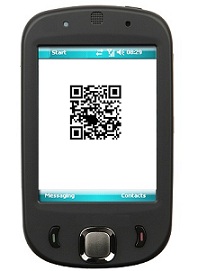 ScanLife reports on the performance of QR codes
ScanLife reports on the performance of QR codes
ScanLife, a leading mobile engagement platform, has released a new report concerning the performance of QR codes during this year’s Black Friday. Black Friday was heralded as a monumental day for mobile commerce and the day itself did not disappoint. Several retailers have reported positive gains in the wake of Black Friday, largely due to the various mobile commerce ventures they had in place for the holiday season. Though QR codes are not often linked with mobile commerce, ScanLife notes that the codes saw a great deal of positive attention on Black Friday.
Codes beginning to break away from marketing
QR codes are most often used in mobile marketing as a way to engage mobile consumers. The codes are proficient in this task, though relatively rarely used by actual consumers. Recently, QR codes have been growing in prominence in the mobile commerce space, where they are being used to provide information concerning particular products or link to an e-commerce site. Typically, the codes receive modest attention from shoppers, but were able to attract a lot of use on Black Friday.
ScanLife sees 50% increase in QR code engagement
According to ScanLife, mobile barcode scans rose over 50% higher than the daily average on Black Friday. ScanLife itself processed more than 250,000 unique scans during the shopping day, with 75% of all scans coming from QR codes rather than any other barcode. The consumer electronics and retail industries saw the most traffic through QR codes during Black Friday.
Codes could become a staple in mobile commerce
Though QR codes are often criticized for the poor engagement statistics, they served a vital role during the holiday shopping weekend. The codes helped make mobile commerce a success during Thanksgiving day and Black Friday. The performance of the codes may help encourage retailers to make use of them to further mobile commerce and shopping initiatives. The codes could also be used in virtual “pop-up” stores, where they can be scanned by consumers to purchase products.
 Microsoft patents documents augmented reality glasses project
Microsoft patents documents augmented reality glasses project
Microsoft has been showing a great deal of interest in augmented reality lately. The technology company appears to be ready to take its interest to the next level, according to a patent filed with the U.S. Patent and Trademark Office. The patent filing from Microsoft documents plans for the development of a pair of augmented reality glasses, very similar to those being developed by Google. Microsoft believes that its glasses will be more than capable of competing with Google’s Project Glass.
AR system could be used for entertainment
The patent covers “a system and method to present a user wearing a head-mounted display with supplemental information when viewing a live event.” Essentially, the augmented reality glasses will be able to provide digital information concerning whatever is being viewed, allowing users to browse this content through a variety of contextual displays. The system has immediate implications for entertainment, as Microsoft is expected to leverage augmented reality technology in gaming and video. Augmented reality glasses could be used for much more than that, however.
Augmented reality shows potential in mobile commerce
Augmented reality has gained significant traction in marketing because of its interactive capabilities. Consumers have responded well to campaigns that make use of the technology in the past, leading to growing demand for the technology today. This interest is beginning to bleed into the realm of mobile commerce, where augmented reality technology could be used to make shopping more engaging and interactive.
Microsoft aims to compete with Google and others
Google has managed to generate a large amount of hype around the prospects of augmented reality glasses with Project Glass. Microsoft aims to overcome the challenge presented by Project Glass with it own augmented reality glasses. Whether the company will succeed in its endeavor has yet to be seen, but Microsoft is not alone in its interest of augmented reality. Sony is also planning to develop a pair of augmented reality glasses that could have a wide range of uses from entertainment to mobile commerce.
 ScanLife reports on the performance of QR codes
ScanLife reports on the performance of QR codes
 Microsoft patents documents augmented reality glasses project
Microsoft patents documents augmented reality glasses project